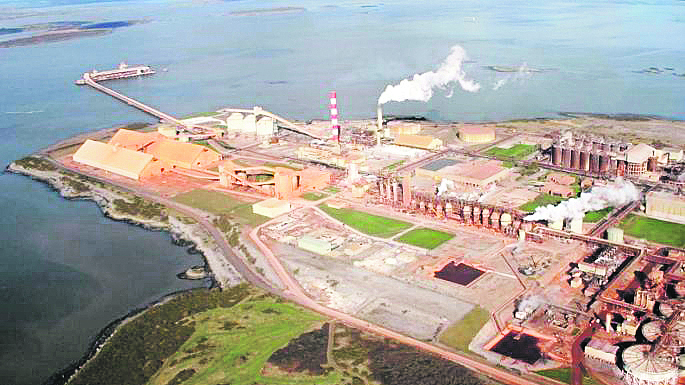
THE full-scale invasion of Ukraine has put County Limerick at the centre of the international campaign of sanctions against Russian banks, bonds and oligarchs.
The Aughinish Alumina refinery at Askeaton, which has been owned by Russian metals giant Rusal since 2007, is now a prime target for retaliatory action and the future of its 482 workforce is now in the balance.
Rusal and its parent company En+ were targeted by US sanctions in 2018 but the Askeaton plant was saved from closure after billionaire owner Oleg Deripaska divested himself of his majority stake in both companies.
However it has been reported that Mr Deripaska, who is close to Russian President Vladimir Putin, continued to exert day-to-day control over both firms, in violation of the sanctions deal.
Last month Foreign Affairs Minister Simon Coveney warned that the threat of sanctions arising from the crisis in Ukraine presented a tangible risk to the Aughinish Alumina refinery.
Minister Coveney said that Europe could be facing its first land war in many decades and Ireland risked being caught up in the fallout from the crisis if sanctions were to follow.
He told the cabinet that sanctions in reprisal for any military action could have an impact on companies like Aughinish and affect deliveries of Russian coal to the Moneypoint power station.
There are also fears that parts of the globally networked financial services and aircraft-leasing sectors could be caught up in retaliatory actions.
In a recent planning application to An Bord Pleanála, management at Aughinish Alumina stated that a number of new developments are required to ensure that production at the Askeaton plant can continue beyond 2030.
The company is seeking permission to raise the height of the residue disposal area for two of its by-products, bauxite residue and salt cake.
In addition to the 482 full time employees, there are a further 385 contract staff employed at the facility, which is the biggest alumina refinery in Europe.
In its planning application, the company said the closure of the facility at Aughinish would result in a significant loss in highly-skilled employment opportunities in the wider area and result in the loss of one of the state’s major industrial manufacturing facilities.










